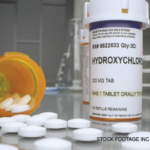HCQ Non-Adherence Rampant
Dr. Petri began by reviewing the short- and long-term benefits of HCQ, which extend beyond its benefits for disease activity. She argued that, instead of being worried patients are being prescribed too much HCQ, clinicians should worry about patients who take too little. She worries that when ophthalmologists warn patients they may go blind from HCQ therapy, they contribute to the problem of compliance. The problem with HCQ adherence was underscored by a study that revealed that approximately half the patients with SLE were non-adherent.6 Moreover, 29% of adolescents and young adults with SLE had undetectable levels of HCQ in their blood and these levels correlated with refill rates.
In reviewing the 2016 AAO guidelines, Dr. Petri noted two quotes from the guidelines: 1) “Patients … should be informed about … proper dose levels”; and 2) “It is not clear that there is any truly ‘safe’ dosage for long durations of use.” Dr. Petri pointed out that once patients have been given this HCQ talk by their ophthalmologist, she often cannot get them to adhere to HCQ doses she prescribes.
These guidelines also make it difficult for her to have a conversation with her patients about why they may need a higher dose. “I worry that this whole discussion has been covered by fear. Fear of blindness,” she emphasized, adding, “There is no reason to make our patients so afraid of a very important drug.”
She concluded by explaining her defense of HCQ stems from the fact that she is protective of her patients. “HCQ is the most important medication we have for lupus. It is the only medication that improves survival,” she stated.
In Dr. Rosenbaum’s rebuttal, he agreed with Dr. Petri’s final thoughts, concluding, “I think we agree on much more than we disagree about. I prescribe HCQ for every patient I have with RA and every patient I have with lupus. Every medication decision [involves a risk-to-benefit discussion].”
Both Dr. Rosenbaum and Dr. Petri encouraged rheumatologists and ophthalmologists to come together to revise the guidelines to reflect that HCQ is a critical medication for this patient population and that the prescription of HCQ is as much art as science.
Lara C. Pullen, PhD, is a medical writer based in the Chicago area.
References
- Fava A, Petri M. Systemic lupus erythematosus: Diagnosis and clinical management. J Autoimmun. 2019 Jan;96:1–13.
- Saxena A, Izmirly PM, Mendez B, et al. Prevention and treatment in utero of autoimmune-associated congenital heart block. Cardiol Rev. 2014 Nov–Dec;22(6):263–267.
- Cabral RTS, Klumb EM, Couto MINN, Carneiro S. Evaluation of toxicretinopathy caused by antimalarial medications with spectral domain optical coherence tomography. Arq Bras Oftalmol. 2018 Nov 1. pii: S0004-27492018005004102.
- Yusuf IH, Sharma S, Luqmani R, Downes SM. Hydroxychloroquine retinopathy. Eye (Lond). 2017 Jun;31(6):828–845.
- Melles RB, Marmor MF. The risk of toxic retinopathy in patients on long-term hydroxychloroquine therapy. JAMA Ophthalmol. 2014 Dec;132(12):1453–1460.
- Durcan L, Clarke WA, Magder LS, Petri M. Hydroxychloroquine blood levels in SLE: Clarifying dosing controversies and improving adherence. J Rheumatol. 2015 Nov;42(11):2092–2097.


